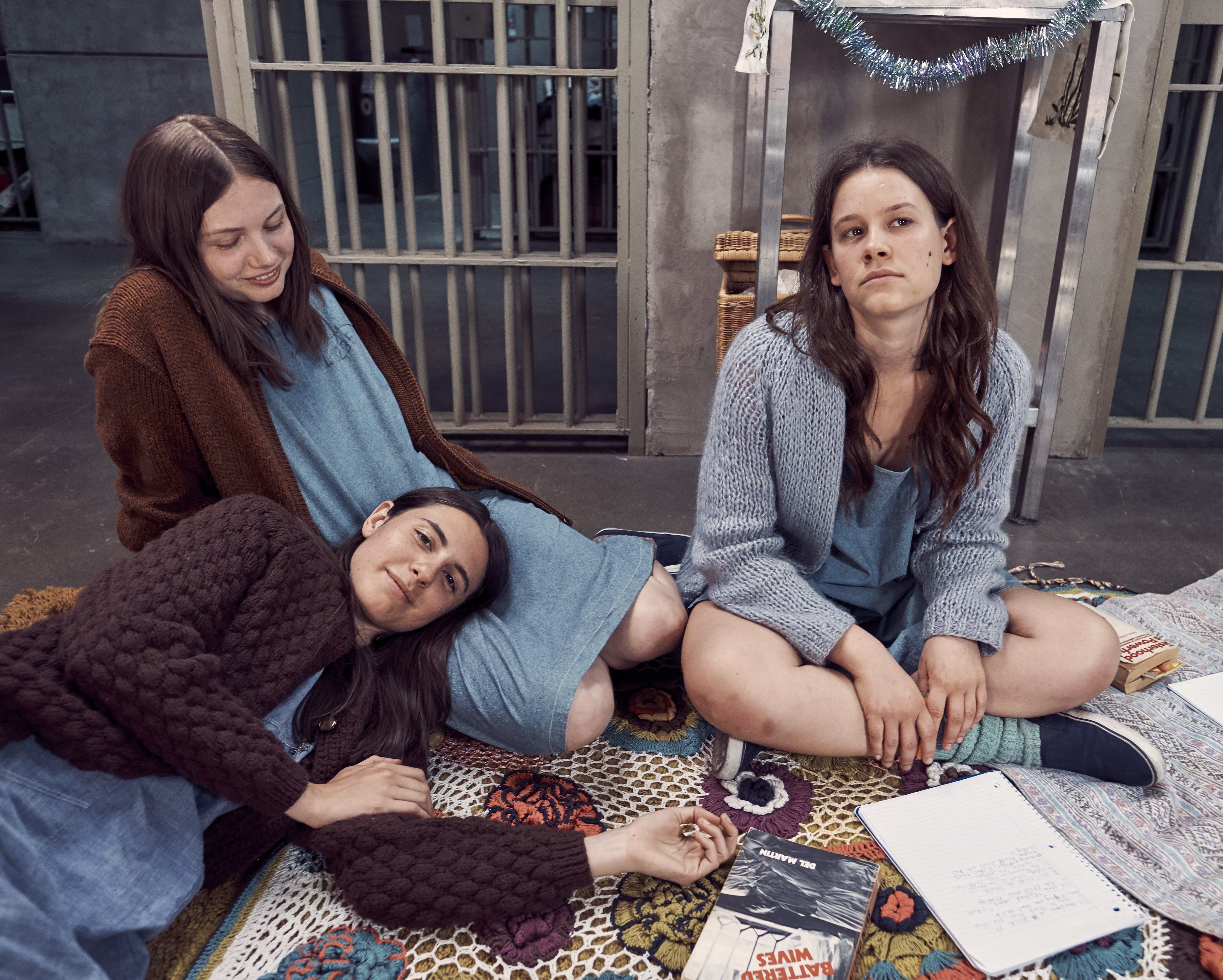Venice Film Review: ‘Charlie Says’
By Jessica Kiang
LOS ANGELES (Variety.com) – “Many people I know in Los Angeles believe that the ’60s ended abruptly on Aug. 9, 1969.” This famous quote, from Joan Didion’s essay “The White Album,” refers to the date of the murders of Sharon Tate and four others by members of Charles Manson’s self-dubbed “Family.” And in coolly definitive white-text-on-black, it opens Mary Harron’s “Charlie Says,” which tells the story of the sluggish moral reawakening of three of Manson’s murderous acolytes, in the years after the killings, when they were incarcerated in the California Institution for Women.
As scintillating and influential as Didion’s work is, it is not without its detractors — those who find her memoirist’s approach to the journalistic essay form too colored with the personal to earn the sweeping certainty of her generalizations. But “Charlie Says” could use a little of that forceful, opinionated clarity — even at the potential risk of giving offense — because without it, the film Harron delivers is so ambivalent as to be frustratingly gun-shy about truly asserting a point of view, or adding anything meaningful to the already thriving cottage industry of Manson-adjacent storytelling. Quentin Tarantino’s Manson-inspired “Once Upon a Time in Hollywood,” for better or worse, is unlikely to be so circumspect, and so “Charlie Says” feels like little more than a preliminary throat clear for that upcoming, much higher profile project.
When we meet them, Leslie “Lulu” Van Houten (Hannah Murray), Patricia “Katie” Krenwinkle (Sosie Bacon), and Susan “Sadie” Atkins (Marianne Rendon) have already been behind bars for three years, occupying neighboring cells in a part of the prison sectioned off from the general population since the commutation of their death sentences to life in jail. With no one to talk to but each other, their confinement has become an echo chamber in which Manson’s delusional, apocalyptic, murderous, racist and sexist ravings have been reinforced to the point of catechism. This is noted with due alarm by Karlene Faith (MVP Merritt Wever), a grad student social worker whose specialization is counseling women who have been incarcerated for killing their abusive partners. Brought in to teach the women, Faith, on whose book Guinevere Turner’s earnest and literal screenplay is partially based, becomes fascinated by the conundrum of reconciling the polite, nonthreatening young women she meets, with the heinous acts they committed.
But that is only half of “Charlie Says” — and by far the more engaging and insightful half. For long swathes of the film, we are trapped in sun-dappled free-love flashback recollections of the halcyon period between Leslie’s arrival on the ranch where Manson (Matt Smith) had his base of operations, and the murders, roughly a year later. In DP Crille Forsberg’s golden-hued, lens-flarey nostalgic images, under Keegan DeWitt’s pleasant but unusually anonymous, modernizing score, the vacuously wide-eyed Leslie is taken under Katie’s wing, and befriends existing “Family” members including Squeaky Fromme (Kayli Carter) and Tex Watson (Chace Crawford). Almost instantaneously indoctrinated, she decides that Manson is the “most beautiful person she’s ever met,” despite his increasingly deranged rantings about “Helter Skelter” that get worse and more ferocious after an audition for music producer Terry Melcher (Bryan Adrian) fails to bring him a recording contract.
Leslie is renamed “Lulu” by Charlie and ordered never to speak about her past, because, as Katie explains, “There is no past. We live in the now.” The dialogue in these flashbacks is almost entirely composed of these trite hippie cliches, delivered like they’re the solution to the riddle of the Sphinx. But the lack of past is evident in Harron’s film overall, which also summons Leslie into existence at the moment she meets Manson, and without prior context, it’s hard to understand what is in these women that makes them subjugate themselves to Manson’s mercurial will.
The issue is the same thorny one that always bedevils the portrayal of the infamous: whether to humanize Manson by cutting him down to size or to attempt to explain the preternatural hold he exerted, thereby running the risk of glorifying him. “Charlie Says” never makes up its mind if Manson was a devastatingly charismatic pied piper figure, which to some extent would make the women victims of a form of domestic abuse, as per Faith’s theory, or if he was just a pathetic, shaggy-haired wannabe, driven violent with pique at a world that didn’t appreciate his genius. In the latter case, Leslie, Patricia, Susan et al are just as deluded and culpable as he is, and as little deserving of our pity.
Harron’s film sets out to grapple with an age-old question in the context of a series of grisly crimes that continue to disturb five decades later: Why do ordinary people do extraordinarily evil things? But the closest “Charlie Says” gets to an answer is the moment that Leslie finally admits that she repeatedly stabbed a complete stranger to death in her own bedroom “for nothing,” and it is not enough.

